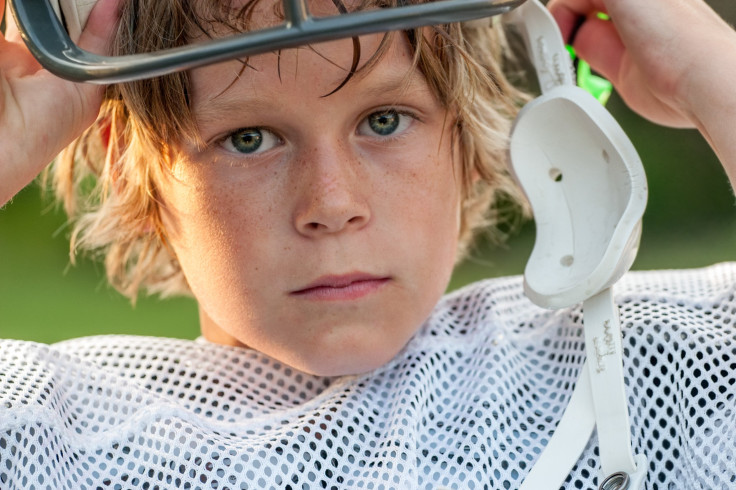Retired Football Players' Brain Scans Reveal Dangers Of Youth Football; Why Kids Shouldn't Start Playing Too Young

Brain injuries have become the NFL’s most well known elephant in the room of medicine. Yet every year, millions of kids as young as 4 slide into their shoulder pads and plastic-padded helmets. New research out of the Boston University School of Medicine has found definitive links between retired NFL players’ brains and the brain injuries they’ve incurred throughout their careers. The study, which tested 42 former professional footballers between the ages of 41 and 65, was published in the journal of Neurology this week.
“Being hit in the head repeatedly through tackle football during a critical time in brain development may be associated with later-life cognitive difficulties,” the study’s senior author Dr. Robert Stern, a professor at the Boston University School of Medicine, told The New York Times. “The take-home message is, the earlier you start, the more issues you may have.”
Researchers found that the adult football players who began playing football before the age of 12 “demonstrated significantly greater impairment” than those who started after. Not only did the earlier starters have a lower verbal IQ, but they also had difficulty with reasoning, planning, and memory recall. The brain development that takes place between the ages of 10 and 12 is considered one of the most crucial stages for a child. Suffering repeated brain injuries during these critically fragile periods of development could forever alter the brain's development and lead to cognitive impairment later in life.
“It makes logical sense that kids, during a time of rapid brain development, should not be exposed to hit after hit after hit to their head,” Stern said. “To me, it is logical. The brain is our most important organ. The idea of dropping kids off at a field during a very important period of maturation and fostering hit after hit after hit, it doesn’t make sense to me personally.”
There’s been a steadily mounting pile of research revealing the risks football puts today’s youth in, and the lackluster future the professional players must live with for the rest of their lives. Looking ahead toward more unconventional treatment approaches, there have been proven benefits in marijuana’s ability to decrease the brain’s swelling from on-field impact.
Brain injuries have become such a profoundly life-threatening part of a football player’s life that the NFL and NFL Players Association announced in the fall it would revisit the substance abuse and performance-enhancing drugs policies. New testing will be performed, and it's expected there will be a revision of how violations will be handled, especially with regard to marijuana’s medicinal use. Still, that’s only a treatment option; what about preventive care for players before they’re forced to search for solace in a bong rip?
Source: Stern RA, Stamm JM, Bourlas AP, Baugh CM, Fritts NG, and Daneshvar DH. Age of first exposure to football and later-life cognitive impairment in former NFL players. Neurology. 2015.



























